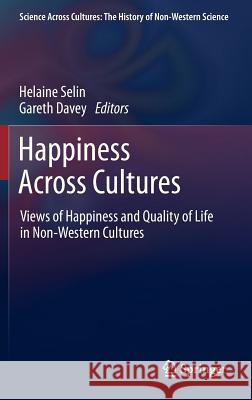Happiness Across Cultures: Views of Happiness and Quality of Life in Non-Western Cultures » książka
Happiness Across Cultures: Views of Happiness and Quality of Life in Non-Western Cultures
ISBN-13: 9789400726994 / Angielski / Twarda / 2012 / 504 str.
Happiness Across Cultures: Views of Happiness and Quality of Life in Non-Western Cultures
ISBN-13: 9789400726994 / Angielski / Twarda / 2012 / 504 str.
(netto: 732,66 VAT: 5%)
Najniższa cena z 30 dni: 765,72 zł
ok. 20 dni roboczych.
Darmowa dostawa!
There seems to have been a view that different cultures experience happiness differently. The West is considered materialistic, and happiness comes from achievement and acquisition. The East is said to be more people-oriented, where happiness is a result of deep personal interactions. Thus, poor people can be happier in the East than the West, because they are not so concerned with possession and more with society. It is certainly true that people experience happiness differently. Some people are resilient, and can put difficult times behind them easily; others cling to sorrow and hard times. Some are philosophically inclined to accept their situation the glass is half full not half empty. Whether this is a matter of culture or personality is hard to gauge; most likely it is a combination of both. This book will explore notions of happiness in different non-Western cultures. Some of the essays will do some comparison with the East, but I have tried to keep the essays culture-specific when possible. There are also some cross-cultural essays and some philosophical and scientific studies that are not related to one culture only. There are some obvious problems. Most obvious is the fact that no political state has one culture. In a country the size of China, almost any explanation of one group might not apply to another. I have tried to include a few chapters on China to correct for this. This is even the case in a country as small as Bhutan; there is a mixture of Buddhist and Hindu people in the country, and there ideas of what makes one happy could be quite different. In South America, there is more likely a connection between mountain dwellers in different nations and rainforest dwellers than with, say, all Peruvians."











